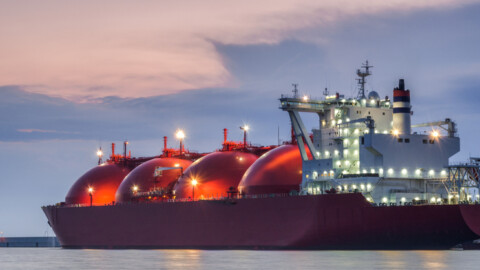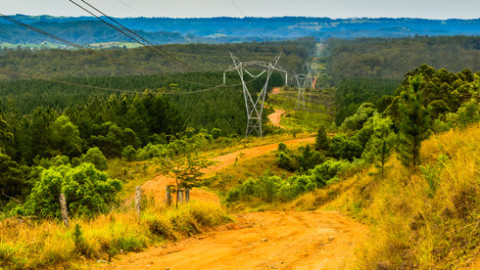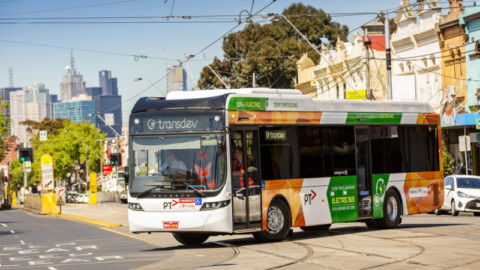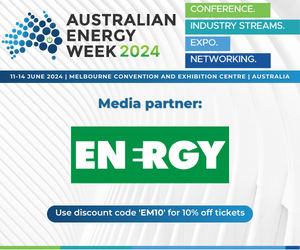In 2017, the City of Melbourne led a group of iconic organisations, local governments, cultural institutions and universities in a project aimed at sourcing and purchasing their own renewable energy direct from the source. The group has since signed an agreement with Pacific Hydro to purchase wind power from its soon-to-be completed Crowlands Wind Farm. This first-of-its-kind agreement has signalled a potential shift in the role retailers will play with large-scale energy users. We spoke to City of Melbourne Deputy Lord Mayor Arron Wood about this innovative new model, and the role retailers can play in future agreements of this type.
As electricity prices continue to rise and consumer trust is on shaky ground, organisations are taking matters into their own hands and are actively seeking their own sources of energy supply outside of the traditional retailer model.

In 2017, for the first time in Australia, 14 organisations from different sectors, led by the City of Melbourne, came together to form a consortium and signed a ten-year renewable energy Power Purchase Agreement (PPA) with Pacific Hydro, supplying them with clean, low-cost power.
The 14 participants in this exercise, known as the Melbourne Renewable Energy Project (MREP), are the City of Melbourne, Bank Australia, NAB, Australia Post, Citywide, Moreland City Council, City of Yarra, City of Port Phillip, NextDC, RMIT University, The University of Melbourne, Zoos Victoria, the Melbourne Convention and Exhibition Centre and Federation Square.
“MREP was inspired by our commitment to contribute to our city’s renewable energy and emission reduction goals, with the ultimate aim to help avoid the worst effects of climate change,” said Arron Wood, City of Melbourne’s Deputy Lord Mayor.
“MREP will help increase the speed of Australia’s transition to a renewable energy supplied-grid and play a key role in achieving our zero net emission targets.
“We also wanted to develop a replicable model for other large energy users to cost-effectively reduce emissions and to drive new investment in large-scale renewable energy generation.”
A closer look at the agreement process
The original idea for a group renewable energy PPA was sparked in 2014. Coming from various different industries, most of the MREP participants had limited knowledge about PPAs and how they are developed.
Because of the unfamiliarity in Australia of this type of agreement, its development within the Australian regulatory framework was also new to many advisors, including legal, procurement, probity and energy market consultants. MREP relied on champions within each organisation to maintain momentum and overcome strategic barriers, and they called on input from communications, procurement and legal staff as the project reached important milestones.
Eventually, MREP developed a contract structure that would accommodate different renewable energy purchasing preferences for different customers in the group. The purchasing group made this decision because each organisation had different needs and objectives, however, this did make the tender process especially complex.
The MREP tender for the supply of electricity and large-scale generation certificates identified a combination of contracting requirements over a ten-year period, and established five key criteria for assessing tender responses.
The most important was price, which was assigned 60 per cent of the weighting. Community and environmental benefits were assigned 12.5 per cent, while retailer service and project delivery risk were both assigned ten per cent. Finally, Victorian local community economic and promotional benefits were weighted at 7.5 per cent.

Constructing the source
In November 2017, Pacific Hydro and its retail arm Tango Energy were chosen as the preferred suppliers for the PPA. Pacific Hydro Chief Financial Officer, Rob Spurr, said, “This new approach to power purchasing will help our partners to take control of their costs, reduce their emissions and directly support our work decarbonising the power system. Initiatives such as MREP will be key in driving new renewable energy generation in Australia.”
In order to produce the amount of energy required to power the consortium, MREP is supporting the construction of a wind farm at Crowlands, 20km northeast of Ararat in Victoria. The wind farm will consist of 39 turbines and have an 80MW capacity.
MREP members have committed to purchase 88GWh per year from the Crowlands Wind Farm as part of the ten-year agreement. The project site was chosen because it has strong, consistent winds and is in close proximity to the electricity grid.
The Crowlands Wind Farm will be owned and operated by Pacific Hydro, and the power will be supplied to Tango Energy, who will sell the remainder of the farms output to the grid.
The proactive approach that MREP is taking is signalling a shift in the relationships between corporations and retailers. In order for retailers to continue to remain competitive in the energy market, this change needs to be embraced and greeted with an open mind.
One of the key benefits PPAs can offer the industry is investment into new large-scale renewable projects with the security of long-term purchase commitment.
“The customer group’s ten-year commitment to purchase renewable energy from the Crowlands Wind Farm unlocked investment for construction of this large-scale project. In total, MREP leverages around $150 million of electricity spend over ten years, from 14 partners; an amount large enough to give a renewable energy developer certainty to invest and build,” Mr Wood said.
“A crucial strategy to the success of the MREP was collaborative engagement of the electricity supply and generation businesses to understand what was viable from all stakeholders. Partnering with an electricity retailer and generator who are as enthusiastic and collaborative as the customers is crucial to making a PPA work.
“Pacific Hydro demonstrated that they were prepared to think outside the square and look at flexible contracting options. The fact that Pacific Hydro is the preferred supplier shows that tier two retailers can be more than competitive.”
Construction began on the wind farm in March 2018 and completion is anticipated for May 2019. By January 2019, Pacific Hydro had installed 25 of the 39 turbines required and energy has begun flowing into the power grid.
Innovative pricing model
Being a new concept to the Australian market, the MREP contract and pricing model was previously untested. Suppliers found the innovative contract structure challenging to understand and was the cause of considerable delay to the negotiation and development of final contracts.
Under the final agreement, MREP participants could choose between:
- A contract for the sale of retail electricity supply and provision of Large Scale Generation Certificates (LGCs)
- A contract for the purchase of LGCs only with a specified fixed annual load
For those who chose the combined retail electricity supply and LGC contract, an agreed proportion of the retail price is fixed for the ten-year period, based on the cost of production at the renewable energy facility. The remainder of the retail price is based on energy market movements and will be reset every two years under a market indexing and reset provision.
The City of Melbourne and a number of other MREP partners decided to purchase LGCs equivalent to their electricity consumption, and buy an additional 20 per cent through the offset market, such as from renewable energy projects overseas, or from reforestation or savannah land management projects. Buying offsets from projects such as these are cheaper than LGCs.
“Renewable energy procurement for MREP involves purchasing LGCs. The MREP Group obtain their electricity from the grid in the normal way, but we purchase LGCs equivalent to our electricity consumption, meaning our electricity is 100 per cent renewable,” Mr Wood said.
The benefits of the PPA
The results of this renewable energy PPA are expected to have a number of benefits, including:
- Reducing emissions and delivering on strategic goals in a cost-effective way
- Building a reputation for leadership and innovation
- The opportunity to directly support the local renewable energy industry
- Opportunities for storytelling and creating awareness for customers
- Reduced and stable energy costs
- No repeated internal procurement processes over the duration of the PPA contract
There are potential risks involved when entering a PPA, however, these can be mitigated by several key mechanisms and arrangements in the contract.
“Corporates interested in PPAs need to understand the fundamental market drivers and their impact in order to mitigate their energy price risks over the long term. With limited future price forecasting the fixed price for electricity over the contract term could be higher than wholesale electricity market trends,” Mr Wood said.
“LGC purchase arrangements are exposed to changes in legislation to the Renewable Energy Target which could lead to changes in price.”
Other challenges involve the risk of delays associated with construction and connection to the electricity grid when procuring electricity from a new wind or solar farm.
What the future holds for PPAs

Building on the success and insights of MREP, the City of Melbourne will be facilitating another power purchase agreement for businesses across the city. A number of large energy users have already expressed interest to join the buying group.
Mr Wood said the next corporate group PPA will be able to share the benefits and learnings of MREP, and further contribute to the municipality’s renewable energy and emissions reduction targets.
“The next corporate group PPA will help us to engage with the broader community on renewable energy and zero net emissions, drive economic development in the city and create linkages to regional areas in Victoria,” Mr Wood said.
“The MREP project team has actively encouraged replication of the model to others through sharing lessons at conferences, industry events and delivering a masterclass series. Since launching the MREP tender process, renewable energy PPAs have been announced by Carlton United Breweries, Telstra, Coca-Cola, ANZ, Monash University, UNSW and Deakin University. A
group of councils is currently also looking into entering a group PPA.
“Adoption of the MREP model by other organisations has demonstrated the positive impact of the group’s leadership. Together all PPAs will assist to reduce cost for renewable energy and reduce carbon emissions.”
If you are interested in learning more about the group corporate PPA process, contact [email protected]

















